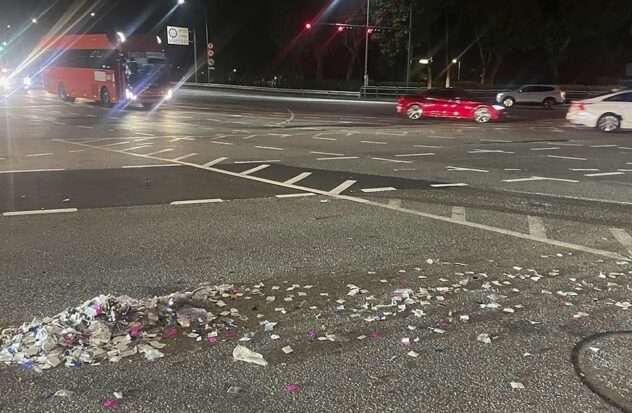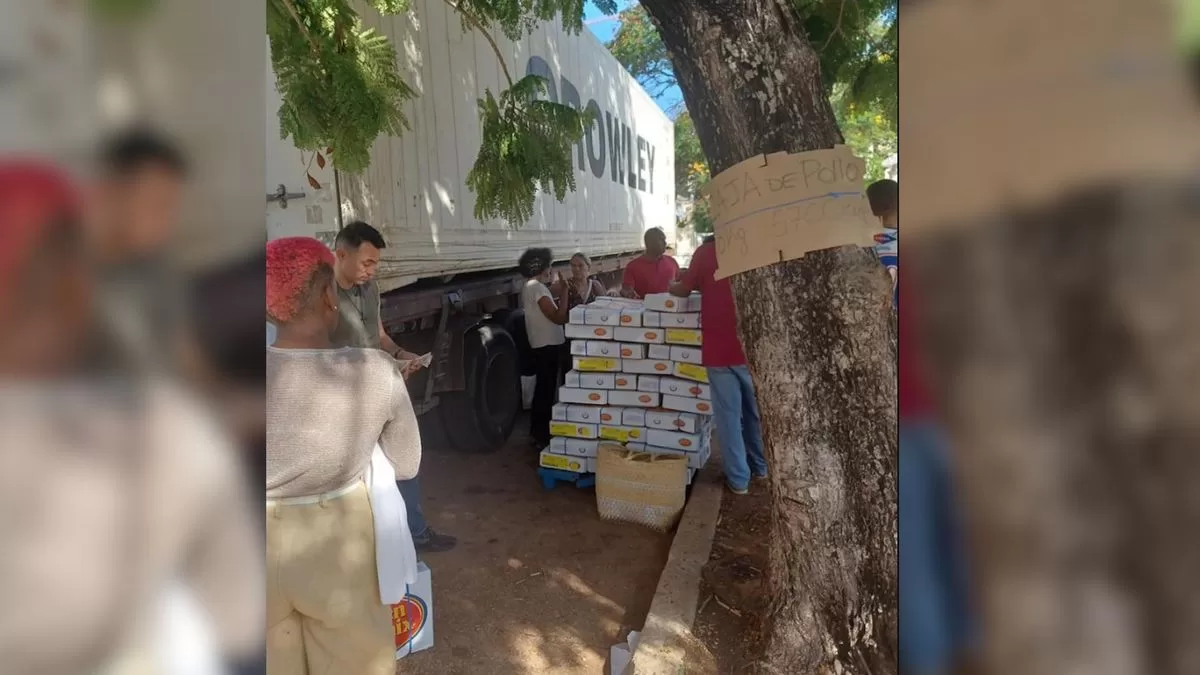SEOUL.- North Korea sent hundreds of balloons loaded with garbage and manure towards South Korea, in one of its most unusual provocations against its rival in years. The South Korean army mobilized teams of experts in explosives and chemicals on Wednesday to remove objects and remains in various parts of the country.
The operation came after North Korean leader Kim Jong Un urged his military scientists to overcome a failed satellite launch and continue developing space surveillance capabilities, which he described as crucial to countering US military activities. and South Korea, according to state media on Wednesday.
In his first public statements about the ruling, Kim also threatened unspecified “overwhelming” action against South Korea over maneuvers involving 20 fighter jets near the border between the two Koreas hours before North Korea’s failed launch on Monday. In a speech on Tuesday, Kim described the South Korean response as “hysterical drill formation flying and attack” and “a direct military challenge” to North Korea, according to the Korean Central News Agency, an official North Korean media outlet.
In another sign of tensions between the two rivals divided by war, the South Korean General Staff said Pyongyang had launched a large number of balloons carrying garbage towards the south since Tuesday night, an apparent retaliation against South Korean activists who drop leaflets. of propaganda against the North Korean government from the other side of the border.
The South Korean military said that by Wednesday afternoon, some 260 balloons arriving from the north had been found in various parts of the country and were being removed by military rapid response and bomb disposal teams. The balloons carried various types of waste and manure, although no human excrement had been found so far. The military advised civilians not to touch the items arriving from North Korea and to report findings to the military or police.
Images released by the military showed garbage strewn on highways and roads in several places across the country. In the capital, Seoul, military officials found what appeared to be a timer, probably designed to burst garbage bags in the air. On a road in the central province of South Chungcheong, two huge balloons were seen with an unburst plastic bag filled with an earth-like substance.
At the moment there were no reports of damage caused by the balloons. Similar episodes involving North Korean balloons caused damage to cars and other property in 2016.
In a statement over the weekend, North Korean Vice Minister Kim Kang II said the North planned to dump “piles of discarded paper and filth” in border areas and elsewhere in South Korea, something he called a “response.” proportional” due to the drop of leaflets from South Korean activists.
Kim Jong Un made his comments about the satellite in a speech at the Academy of Defense Sciences, which he visited the day after a rocket carrying what would have been his country’s second military reconnaissance satellite exploded shortly after takeoff. North Korea’s Aerospace Technology Administration said the explosion could be related to the reliability of a new rocket engine that runs on petroleum and uses liquid oxygen as an oxidizer.
The enmity between the two Koreas is at its worst in years, and the pace of both Kim’s weapons demonstrations and South Korea’s military exercises with the United States and Japan have intensified since 2022.
The failed satellite launch was a setback for Kim’s plan to launch three more military spy satellites in 2024, after the country put its first model into orbit last November. The November launch was made after two failed attempts.
Monday’s launch was met with criticism in Seoul, Tokyo and Washington because the United Nations has banned Pyongyang from such launches, which it considers covert tests of long-range missile technology.
North Korea has reiterated that it has the right to launch satellites and test missiles in the face of what it perceives as U.S.-led military threats. Kim described the spy satellites as crucial to monitoring U.S. and South Korean military activity and reinforcing the threat posed by their nuclear-capable missiles.
Source: With information from AP


